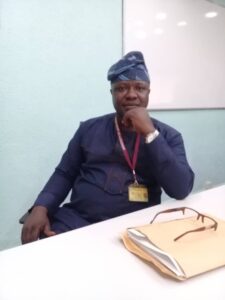Potency of Power of the People with Ballot Box
Potency of Power of the People with Ballot Box
By Afolabi Akinola

Afolabi Akinola
Destruction is self-engineered, and sovereignty belongs to the people. The power of the ballot box, bolstered by biometric verification, lies firmly in the hands of the populace. Political science authorities concur that democracy is a government of the people, by the people, and for the people. We are the architects of our own destiny, and our choices at the polls shape our future. No one coerces us into voting; we are products of our own decisions.
Change begins with us. The population of Nigeria significantly outnumbers those elected to lead. With our collective decision-making, we can transform our fortunes. While laws are broken worldwide, leading to offenders and prisoners, civilized nations have shown their preferences through the ballot box. The difference in their franchise practices and ours is the pernicious influence of “stomach infrastructure.” We have developed a habit of accepting money before voting, turning votes into commodities. However, citizens hold the power of refusal. When politicians realize they can be held accountable and replaced through the ballot box, performance and governance will improve.
Nigerians obey foreign laws abroad, yet often disregard their own at home. Those who flout regulations domestically comply with them overseas, and we funnel our nation’s wealth into foreign banks. Why do foreigners not deposit their ill-gotten gains in Nigeria? It suggests a lack of love for our country.
Social Security systems in Euro-American societies enable efficient legal processes. Innocence is not an excuse in Nigeria; sovereignty belongs to the masses. Citizens can impeach, replace, and enthrone leaders with their votes. Loyalty to our nation should start with us. When determined, citizens can uproot the weeds with their votes.
Historically, Nigerian voters have been complicit in bad governance. Protesting against one’s own electoral choices is paradoxical. Our system is entrenched in corruption. Until mental infrastructure replaces stomach infrastructure, we will remain in a cyclical pattern. The late Chief Gani Fawehinmi, a Senior Advocate of the masses, lost an election in this country—rejected by the very people he sought to serve.
In a biblical context, the first recorded election saw Jesus Christ lose to Barabbas before Pontius Pilate. The people chose to execute the righteous and spare the criminal. Throughout history, the masses have been responsible for their choices. Power belongs to the people, but wisdom is required to make sound decisions.
Karl Marx posited that the state is an instrument of the ruling class. Shakespeare, in Julius Caesar, explores the consequences of betrayal and the lessons therein. George Orwell’s Animal Farm illustrates that while all animals are equal, some are more equal than others. These references underscore how the people shape their destiny through their choices.
Yours sincerely,
Afolabi Akinola
TRENDING SONGS
 WOMAN REVEALS HOW PATIENCE AND TIMING HELPED HER BUILD A PEACEFUL FIVE-YEAR MARRIAGE
WOMAN REVEALS HOW PATIENCE AND TIMING HELPED HER BUILD A PEACEFUL FIVE-YEAR MARRIAGE
 How N100m Was Mistakenly Paid Into Egbetokun’s Son’s Personal Account — FPRO
How N100m Was Mistakenly Paid Into Egbetokun’s Son’s Personal Account — FPRO
 RCCG PASTOR ANGRY OVER CALLING Him“MR” INSTEAD OF “DR,” DECLARES CURSE ONLINE
RCCG PASTOR ANGRY OVER CALLING Him“MR” INSTEAD OF “DR,” DECLARES CURSE ONLINE
 NPMA Appeals to Nigerian Government for Compensation After Lagos Market Fire
NPMA Appeals to Nigerian Government for Compensation After Lagos Market Fire
 Rest Every Four Hours, FRSC Issues Safety Guide for Fasting Motorists
Rest Every Four Hours, FRSC Issues Safety Guide for Fasting Motorists
 NNPC Boss Ojulari Bags UK Energy Institute Fellowship
NNPC Boss Ojulari Bags UK Energy Institute Fellowship
 Shock in Anambra: Bride Disappears Moments Before Wedding
Shock in Anambra: Bride Disappears Moments Before Wedding
 Nigerian Woman Returns ₦330 Million Accidentally Credited to Her Account
Nigerian Woman Returns ₦330 Million Accidentally Credited to Her Account
 APC Don Reach Morocco?’ VeryDarkMan Reacts to Seyi Tinubu Poster
APC Don Reach Morocco?’ VeryDarkMan Reacts to Seyi Tinubu Poster
 Bride Breaks Down in Tears as Wedding Meals Were Kept Secretly While Guests Go Home Hungry
Bride Breaks Down in Tears as Wedding Meals Were Kept Secretly While Guests Go Home Hungry
Share this post with your friends on ![]()













